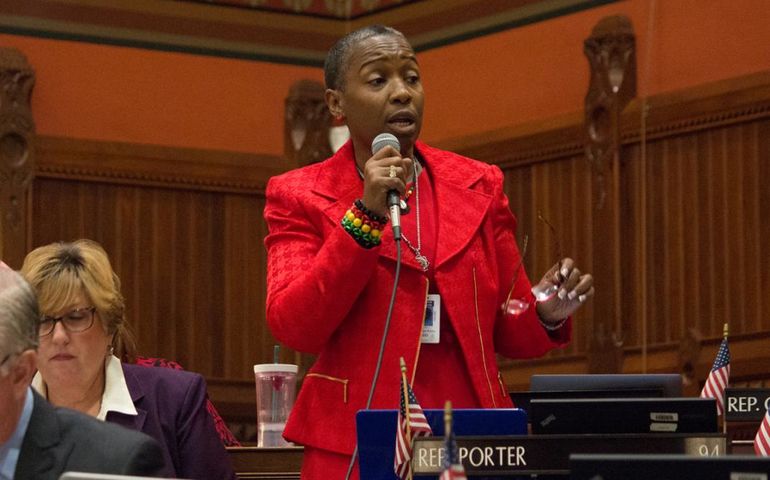Processing Your Payment
Please do not leave this page until complete. This can take a few moments.
-
News
-
Editions
-
- Lists
-
Viewpoints
-
HBJ Events
-
Event Info
- 2024 Economic Outlook Webinar Presented by: NBT Bank
- Best Places to Work in Connecticut 2024
- Top 25 Women In Business Awards 2024
- Connecticut's Family Business Awards 2024
- What's Your Story? A Small Business Giveaway 2024 Presented By: Torrington Savings Bank
- 40 Under Forty Awards 2024
- C-Suite and Lifetime Achievement Awards 2024
- Connecticut's Health Care Heroes Awards 2024
-
-
Business Calendar
-
Custom Content
- News
-
Editions
View Digital Editions
Biweekly Issues
- April 15, 2024
- April 1, 2024
- March 18, 2024
- March 4, 2024
- February 19, 2024
- February 5, 2024
- January 22, 2024
- January 8, 2024
- Dec. 11, 2023
- + More
Special Editions
- Lists
- Viewpoints
-
HBJ Events
Event Info
- View all Events
- 2024 Economic Outlook Webinar Presented by: NBT Bank
- Best Places to Work in Connecticut 2024
- Top 25 Women In Business Awards 2024
- Connecticut's Family Business Awards 2024
- What's Your Story? A Small Business Giveaway 2024 Presented By: Torrington Savings Bank
- 40 Under Forty Awards 2024
- C-Suite and Lifetime Achievement Awards 2024
- Connecticut's Health Care Heroes Awards 2024
Award Honorees
- Business Calendar
- Custom Content
Wage disclosure bill clears House
 Photo | CT House Democrats
Rep. Robyn Porter, D-New Haven.
Photo | CT House Democrats
Rep. Robyn Porter, D-New Haven.
The state House of Representatives on Tuesday passed a bill that would require employers to disclose a job’s “wage range” to applicants.
HB 6380 would mandate the disclosure of a position’s expected compensation range by businesses to applicants either upon the applicant’s request or at the time an offer of employment is made, whichever comes first. Employees would have the right to inquire about their position’s wage range annually. The proposal also changes the standard used to determine if an employer is committing gender-based wage discrimination, requiring employees to provide equal pay for comparable work, not just equal work.
The bill does include protections for some pay differences, however, if employers can demonstrate they are basing compensation levels on seniority, merit, productivity or “a differential system based upon a bona fide factor other than sex, such as education, training or experience.”
The legislation cleared the House 99-48 and will now go before the state Senate.
Supporters, including Rep. Robyn Porter (D-New Haven) and Rep. Kate Farrar (D-West Hartford) said the bill will increase transparency and fairness around wages, especially for women, who on average earn less than men, and particularly for mothers, who are often left shouldering child care responsibilities.
“In 2021, 58 years after the Federal Equal Pay Act, women consistently earn less than men no matter where they work or where they live, with mothers earning even less,” Farrar said. “The bill we passed today will empower thousands of mothers to negotiate for fair and equal pay.”
The issue of the U.S.’s gender pay gap has received renewed attention in light of the COVID-19 pandemic, which has caused approximately 3 million American women to drop out of the labor force. HB 6380’s backers have said the bill could play a role in undoing at least part of that massive setback by ensuring women are being fairly compensated for their work.
Eric Gjede, vice president of government affairs at the Connecticut Business & Industry Association, said the CBIA submitted clarifying language to legislators that was ultimately incorporated into the bill.
While still “less than perfect,” Gjede said, the proposal now includes safeguards for businesses that take seniority, productivity and other factors into consideration when determining workers’ pay levels.
“We’re not trying to protect bad actors,” he said. “But there are concerns that the language — going from equal pay for equal work to equal pay for comparable work — could open up employers to greater litigation.”
Gjede said the CBIA has “no problem at all” with the wage disclosure section of the bill now that it has been modified to state how often employees can inquire about their position’s pay range.

2022 Giving Guide
This special edition informs and connects businesses with nonprofit organizations that are aligned with what they care about. Each nonprofit profile provides a crisp snapshot of the organization’s mission, goals, area of service, giving and volunteer opportunities and board leadership.
Learn more
Subscribe
Hartford Business Journal provides the top coverage of news, trends, data, politics and personalities of the area’s business community. Get the news and information you need from the award-winning writers at HBJ. Don’t miss out - subscribe today.
Subscribe
2024 Book of Lists
Delivering Vital Marketplace Content and Context to Senior Decision Makers Throughout Greater Hartford and the State ... All Year Long!
Read Here-
2022 Giving Guide
This special edition informs and connects businesses with nonprofit organizations that are aligned with what they care about. Each nonprofit profile provides a crisp snapshot of the organization’s mission, goals, area of service, giving and volunteer opportunities and board leadership.
-
Subscribe
Hartford Business Journal provides the top coverage of news, trends, data, politics and personalities of the area’s business community. Get the news and information you need from the award-winning writers at HBJ. Don’t miss out - subscribe today.
-
2024 Book of Lists
Delivering Vital Marketplace Content and Context to Senior Decision Makers Throughout Greater Hartford and the State ... All Year Long!
ABOUT
ADVERTISE
NEW ENGLAND BUSINESS MEDIA SITES
No articles left
Get access now
In order to use this feature, we need some information from you. You can also login or register for a free account.
By clicking submit you are agreeing to our cookie usage and Privacy Policy
Already have an account? Login
Already have an account? Login
Want to create an account? Register
Get access now
In order to use this feature, we need some information from you. You can also login or register for a free account.
By clicking submit you are agreeing to our cookie usage and Privacy Policy
Already have an account? Login
Already have an account? Login
Want to create an account? Register






0 Comments